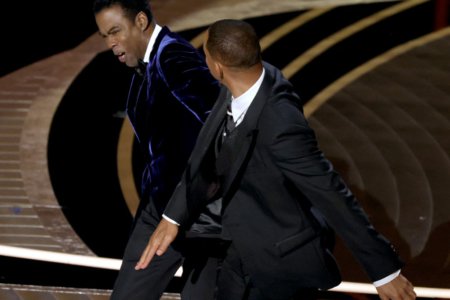
Over 1.5 billion people speak English worldwide — without knowing how the words are flowing out of our mouths.
To those born to English-speaking families and countries, speaking English comes naturally to us. For those just learning the language, it’s not so easy.
This is where knowing the most common words in English can help. These are what pepper most of our conversations — if you know them, you can spot them.
And by spotting them, you can hear it in context when you’re going about your life.
Next time, instead of just knowing them, you too can use those words. How great is that?

The eight parts of speech are the structure that indicates how the word functions in meaning as well as grammatically within the sentence. Source: AFP
The eight parts of speech
Before we get into the most common words in English, we first need to understand the eight parts of speech.
Think of these parts as categories of words, each with its own function. Imagine these parts as parts of a house, for example, the roof. There are bricks that make up the roof.
The bricks are the words, while the roof is the part of speech.
The English language has eight parts of speech. They are nouns, pronouns, verbs, adjectives, adverbs, prepositions, conjunctions and interjections.
Nouns are the names of people, places, things, or ideas, while pronouns replace nouns to avoid repetition.
For example, you might say. “Ash have a cat. She’s brown and white.” “Ash” is a noun, while “She” is a pronoun. Other pronouns include:
- I/me
- she/her
- he/him
- they/them
- It
- we/us
- you
- that
- what
- which
- who
- whom
- one
- other
- none
- some
- anybody
- everybody
- no one
Verbs express actions or states of being, while adjectives and adverbs add descriptive details to enhance the meaning.
For example, you might say “Ash feeds her brown cat every day.” “Feed” is the verb, while “brown” is the adjective.
Prepositions show relationships between words, conjunctions connect clauses or sentences, and interjections express strong emotions.
For example, you might “Wow! Ash and her sister sat beside their enemies Bob and his brother.” “And” is a conjunction and “beside” is the preposition. “Wow” is an interjection.
Other examples of conjunctions include:
- and
- but
- yet
- for,
- or
- so
Other prepositions include:
- in
- at
- behind
- in front
- on
- beside
- for
- despite
Now that you know the eight parts of speech, you’re ready to learn the most common words in English for each part.

It is no surprise that “time” is one of the most common words in English as we use it in our everyday lives. Source: AFP
The most common words in English used in the 8 parts of speech
Noun:
1. Time
In everyday conversations, “time” is one of the most common words in English when discussing nouns.
It is very important to us as we use it to measure moments and shape our experiences.
For example, when you say, “Let’s meet for lunch at 12:30,” you’re pinpointing a specific time to share a meal.
2. Year
For example, when you say, “I’ll start my new job next year,” you’re using “year” to convey a specific timeframe, i.e. 2025, highlighting its fundamental role in expressing durations and plans.
3. Day
The word “day” represents the 24-hour cycle that shapes our lives.
It signifies the time between sunrise and sunset, organising our routines and activities.
For example, when you say, “Let’s have coffee one day this week,” you’re using “day” to suggest a specific timeframe.
Pronoun:
1. I
“I” is one of the most common pronouns in English. You use it when you’re talking about yourself.
For example, as you reflect on your journey through university, saying “I learned a lot” adds a personal touch to your expression.

“You” is a pronoun used to refer to the person or people the speaker is addressing. Source: AFP
2. You
“You” refers to the person you’re talking to.
For example, when talking to a friend, you may say, “You look great today.”
3. They
If you’re talking about a group of friends, use “They.”
This word refers to a group of people or objects without specifying gender.
For example, you may want to comment about last night’s football match by saying, “They looked tired yesterday.”
Verb:
1. Be
“Be” is like the glue that holds your sentences together, serving as a versatile verb in various situations.
Whether describing yourself, stating facts, or expressing a state of being, “be” can be used in many of your conversations.
For example, you may say, “I want to be a doctor.”
2. Have
“Have” is one of the most common words in English.
Whether you’re indicating possession, experiencing something, or expressing obligation, “have” is very useful.
For instance, when planning your day, you may say, “I have a meeting at noon, and then I have to grab lunch.”
3. Know
In your daily conversations, the word “know” is essential.
Whether affirming your understanding or expressing familiarity, “know” is your go-to verb.
For instance, when your friend asks if you’ve seen that new movie, a simple “Yeah, I know it” simply explains that you know the movie without diving into a lengthy explanation.
Adjective:

Used to express something as pleasant or enjoyable, “good” is one of the most common words in English. Source: AFP
1. Good
“Good” is a common adjective in English, like a thumbs-up for things that bring joy and happiness.
You use it to describe something nice, pleasing, or high quality.
For example, when you taste a delicious ice cream, you can say, “I enjoyed a good ice cream.”
2. Last
“Last” is a handy adjective in English, helping you talk about the final or most recent thing in a series.
You use it when referring to the one that comes after all the others.
For example, when you eat the final cookie in the jar, you can say, “I took the last cookie in the jar.”
3. High
“High” is an important adjective in English, describing things that are up above or far from the ground.
You use it when talking about tall people or objects or when something is positioned at an elevated place.
For instance, you may say, “That is a tall guy” or “I’m climbing that tall mountain.”
Adverb:
1. Now
“Now” is one of the most common words in English when we talk about time.
2. Here
“Here” is a handy English adverb pointing directly to a place like a guide. You use it when discussing where something is located or happening nearby.
For example, when you find your lost toy, you can say, “I found your toy here in the living room.” It’s a word that brings attention to the exact spot you want everyone to notice.
3. Always
“Always” is one of the most common words in English. You use it when something happens every time without fail.
For example, when you brush your teeth every morning, you can say, “You always brush your teeth before school.”
Preposition:
1. In
When you say, “I found my keys in the drawer,” you’re using “in” to explain where exactly you discovered them.
2. On
When you say, “I put the book on the table,” you’re using “on” to show exactly where the book is.
3. At
When you say, “I’ll meet you at the library,” you’re using “at” to highlight where the meeting will happen.
It’s a handy word that helps you be clear about places and moments.
Conjunction:
1. And
Next on the list of most common English words is “And.” This word is used to join things together.
When you say, “I like pizza and ice cream,” you use “and” to bring two things into one sentence.
It’s a connector that makes your ideas stick together like best friends.
2. Or
“Or” is an excellent word in English because it lets you choose between things. It’s like a decision-maker in your sentences.
For example, when you say, “Do you want an apple or a banana?” you’re using “or” to give options, and the listener gets to pick what they like.
3. So
“So”is used to make sense and connect ideas smoothly. It’s usually used to tell us the reason why we do something.
When you say, “I finished my homework so I can play video games,” you’re using “so” to show that one thing led to another.
Interjection:
1. Oh
Oh is like a vocal pause button, your instinctive reaction to surprise, realisation, or understanding.
You use it when you suddenly get what someone is saying or something unexpected happens.
Picture this: you’re unwrapping a gift, and it turns out to be precisely what you wanted – a delighted “Oh, wow!” just slips out naturally.

“Wow” is one of the most common words in English that is used to express surprise. Source: AFP
2. Wow
Wow is like a verbal exclamation point, your go-to when something grabs your attention or amazes you.
You say it when you see a breathtaking view or witness a surprising turn of events.
Imagine this: you walk into a surprise party, and the room is filled with friends shouting “Surprise!” – your natural response would be a genuine, “Wow, this is incredible!” It’s that universal expression that effortlessly captures wonder and awe.
3. Ouch
Ouch is like a vocal wince, your instant reaction to a sudden pain or discomfort.
You blurt it out when you stub your toe or accidentally close the door on your fingers.
Picture this: you’re reaching for something on a high shelf, and a box slips, hitting you on the head – ouch!
The involuntary expression turns physical pain into a sound we all understand.










